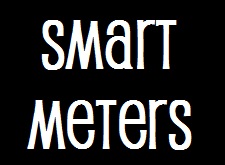 Like Star Wars, the saga continues, but no one’s looking forward to this one. Least of all the new government.
Like Star Wars, the saga continues, but no one’s looking forward to this one. Least of all the new government.
Active commentators on the failings of the energy industry, the Energy and Climate Change (ECC) committee has turned its attention from its regular input into CMA commentary and guidance and urgently called for the government to address the “technical, logistical and public communication issues, which have delayed the national smart meter rollout programme”.
The prize for action is high according to the ECC – the avoidance of a “costly failure”.
ECC Committee chair Tim Yeo said:
“Smart meters could generate more than £17 billion in energy savings for the country yet a series of technical and other issues have resulted in delays to the planned rollout.
“The energy industry told us that it needs the government to enable industry-wide solutions, rather than the less efficient alternative of letting each energy supplier develop its own solution.”
Nobody came out free of criticism from the committee:
DECC faced criticism for failing to resolve technical communication problems with multiple occupancy and tall buildings, or compatibility problems between suppliers and meters.
The essential engagement strategy with the public was said to have “had a slow start”. But rather than tackle the issue head on, Smart Energy GB, the organisation tasked, and remunerated for handling the engagement process shifted responsibility saying, that the next government “will need to provide strong leadership and management” for the smart meter rollout. Hmmmm.
The Major Project Authority’s assessments had not been published which the ECC suggested was “reluctance [by government] to improve transparency”
The already tight timescales of the roll-out, with 50+ million meters to be installed in houses and business by 2020 has already been delayed by a further 4 months to April 2016 with little confidence that the ‘roll out’ will start in earnest by that point.
For his part, Secretary of State for Energy and Climate Change Ed Davey defended the process saying:
“[The roll out] is not [off course because] the aim is to complete it by the end of the decade”.
With confidence like that who could possibly be worried? Perhaps it’s simply the words of a man who’s responsibility it will no longer be past this week.
Davey explained:
“We had hoped that [the DCC programme] would go live in December this year, we’ve now re-planned it to April next year – so it’s a few months different – but in terms of the rollout, it’s not going to have any dramatic effect.”
The energy suppliers themselves, surprisingly marginalised by the government, DECC and Ofgem’s approach to the smart meter rollout, joined the chorus of criticism with SSE saying:
“[This] further demonstrates that this programme is subject to continued delays”.
And:
“Unless action is taken, this could significantly increase the costs consumers pay”.
EDF added:
“[The scheme needs to be] closely scrutinised [to be] more efficient and robust”.
Adding:
“In order for the smart metering programme to be a success we must have consumers’ trust that all possible options have been explored to keep costs down.”
Whilst some suppliers have decided on a strategy to press ahead with non-roll out smart meter installation including Ovo Energy who said the supplier was:
“Committed to rolling out smart meters with or without a government mandate.
“We have serious concerns about the current centralised communications infrastructure, which is already beset by delays and unnecessary cost. We would welcome a review of the entire programme, to simplify the process and ensure it is as cheap as possible for customers.”
Ofgem, in a recent and rare public announcement on smart meters promised a bright future off the back of a roll out for customer empowerment. The regulator claimed smart meters would deliver:
“More empowerment means greater consumer involvement and participation in energy markets”
Which they believe would prove a catalyst for:
“In a more competitive environment, providers should seize the opportunity to engage consumers with new products and services and different ways to engage in the market.”
In addition, Ofgem promised that:
“Smart meters can help to create a more efficient energy market where there are benefits for consumers as well as the environment. For example, it will be much easier for customers to provide demand-side response. This is where customers can save money if they shift their usage from peak hours to other times during the day when cheaper, renewable electricity is produced.
“We want to see a dynamic and competitive energy market where engaged, empowered consumers drive ever-increasing innovation, better standards and new products and services. In turn, these will deliver further benefits to consumers.”
And critically the regulator added:
“If customers have precise information on how much energy they use and better ways to manage their usage and costs, it will be easier for them to shop around for better deal.
“Making switching fast, and more reliable will empower consumers to get the most out of this, which is core to an effective energy market.”
That’s a whole lot riding on the installation of a meter, or 50 million of them, and a long time to wait.
For our part we are confident that the planned smart meter roll out in its initially intended form and timescale will not be achieved and continue to recommend that our customers take a proactive approach to smart meter installation avoiding the need to wait for a technology that should have been commonplace many years past and which shows no sign of mass availability this decade.
